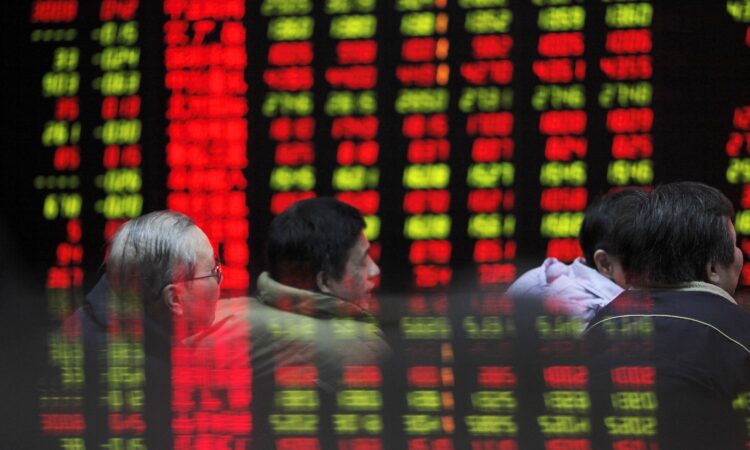
ASIAN markets mostly rose on Friday in line with a rally on Wall Street as traders were buoyed by news that Donald Trump’s latest, sweeping reciprocal tariffs would not likely be implemented until April, giving time for negotiations.
The president has unveiled a range of hardball measures to bring an end to what he says is years of countries taking advantage of the United States, fuelling trade war fears and leading to warnings of another inflation spike.
However, investor sentiment has largely held up on hopes that many of the tariffs can be rowed back with negotiations, while Trump’s announcement of plans to hold Ukraine peace talks with Russian counterpart Vladimir Putin has added some optimism.
The Republican said Thursday he had decided to impose fresh reciprocal duties on trading partners, telling reporters that US allies were often “worse than our enemies” on trade, calling the European Union “absolutely brutal”.
“Whatever countries charge the United States of America, we will charge them,” he added.
However, commerce secretary nominee Howard Lutnick said studies on where and who to hit should be completed by April 1, and the tariffs could start the day after – providing some relief to investors.
BT in your inbox

Start and end each day with the latest news stories and analyses delivered straight to your inbox.
“Tariff ambiguity still reigns, but market are currently drawing some comfort from the news the next set won’t come into effect before April, thereby instilling some hope they could yet be negotiated away (or down),” said National Australia Bank’s head of forex research and markets Ray Attrill.
The move came days after Trump signed executive orders imposing new 25 percent tariffs on steel and aluminium, due to come into effect on March 12.
Observers said there appeared to be a feeling on trading floors that the measures were being used as a negotiating tactic by the White House.
Asian markets enjoyed a broadly positive end to the week.
Hong Kong gained more than one per cent, with Sydney, Seoul, Wellington and Manila following suit.
Tokyo dropped despite a surge in Sony following a healthy earnings report as well as rallies in Nissan and Honda a day after they confirmed the scrapping of merger talks.
Shanghai, Singapore and Taipei also fell.
That came after a strong performance on Wall Street fuelled by a rally in the tech sector. The S&P 500 ended just short of a record and the Nasdaq put on more than two percent.
New York traders were largely unmoved by a forecast-topping rise in US wholesale prices last month, which followed Wednesday’s report on the consumer price index that also came in above expectations and dented hopes for another interest rate cut. AFP

